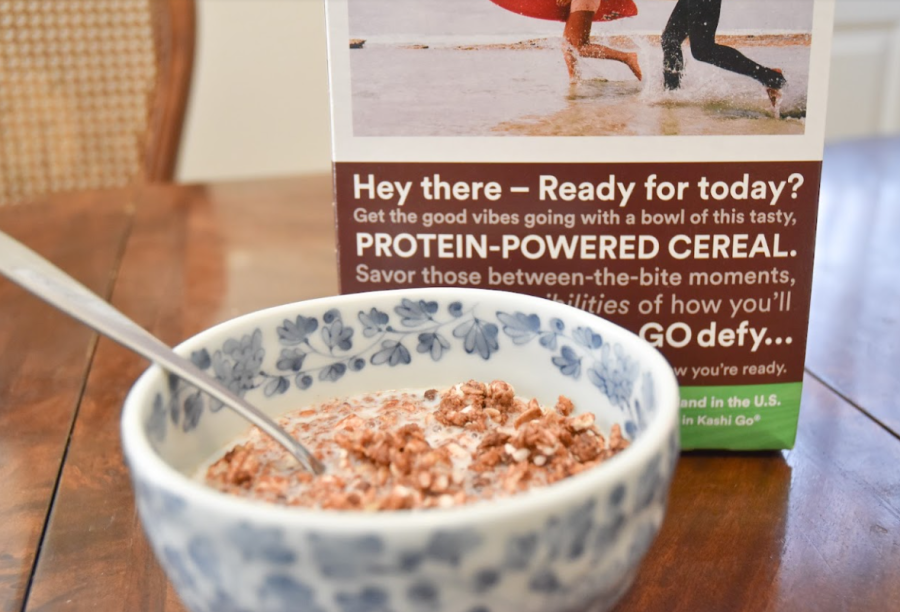Taking the breakfast myth with a grain of salt
PROMISES AREN’T (CE)REAL: Breakfast foods have nutritional value but are not as essential as portrayed.
October 31, 2022
Pushing a cart down the breakfast aisle at Pavilions, your eyes can’t help but notice the dozens of vibrant cereal boxes: Frosted Flakes, Froot Loops, Special-K. On the opposite side, Quaker oatmeal and cinnamon-swirl toast fight for attention. The multitude of breakfast options truly makes you wonder: Is breakfast really as vital as society has made it seem?
The value of breakfast is undeniable and well-supported by various research centers. The Cleveland Clinic, an academic medical center based in Ohio, found that starting the day with a hearty meal provides energy for your body and allows for the highest level of productivity along with breaking the overnight fast and improving certain health conditions.
However, the implication that breakfast is a must for everybody is where the phrase “breakfast is the most important meal of the day” becomes a myth.
A large percentage of Americans practice “intermittent fasting,” a form of dieting that helps maintain calorie intake and can be used to regulate pre-existing medical conditions. Extending the overnight fast to lunchtime is a common practice in this style of eating, resulting in the omission of breakfast.
Additionally, and more commonly, many people wake up and simply aren’t hungry. Starting the day at early hours, the thought of stomaching an entire meal can make people feel sick to the stomach. With this, the misconception is that good nutrition comes from the number of meals you eat each day. Three a day is necessary, any less is a controversy… right?
False. The importance of eating should lie in what works best for an individual, as long as a healthy lifestyle and nutritional values are met in alternative ways. One method is matching the recommended amount of nutrients and energy supply during lunch and dinner, lessening the need for a large meal in the morning.
The misconception about breakfast further stems from the exploitation of breakfast companies such as Kelloggs, who, for decades, helped the movement gain its traction. Brand names have used the widespread idea to market their products as “healthy” and “vital” components of morning routines, despite contradictory research. For example, Kellogg’s Froot Loops claims to be healthy through the inclusion of vitamins, but the true value of these nutrients are far lower in concentration than saturated fat, carbohydrates and sugar.
So the next time you walk around Pavilions and read Kellogg’s “nourishing families so they can flourish and thrive,” there’s no need to fall for it. Eating breakfast isn’t necessarily a good or bad thing but a personal choice that has studies to back both decisions.
But just know, the cereal advertising market is out to get you.



![AAAAAND ANOTHER THING: [CENSORED] [REDACTED] [BABY SCREAMING] [SIRENS] [SILENCE].](https://thehowleronline.org/wp-content/uploads/2025/06/lucy-1200x800.jpg)


















































![AAAAAND ANOTHER THING: [CENSORED] [REDACTED] [BABY SCREAMING] [SIRENS] [SILENCE].](https://thehowleronline.org/wp-content/uploads/2025/06/lucy-300x200.jpg)



